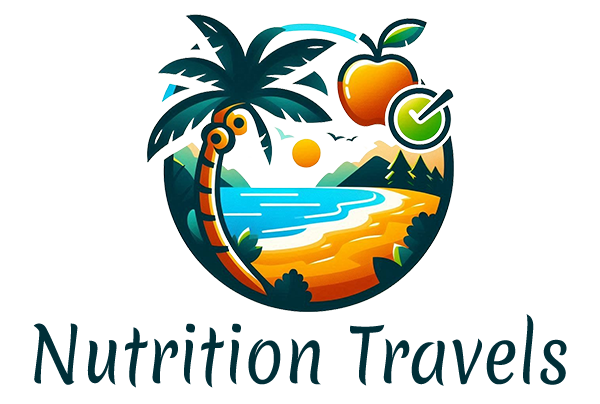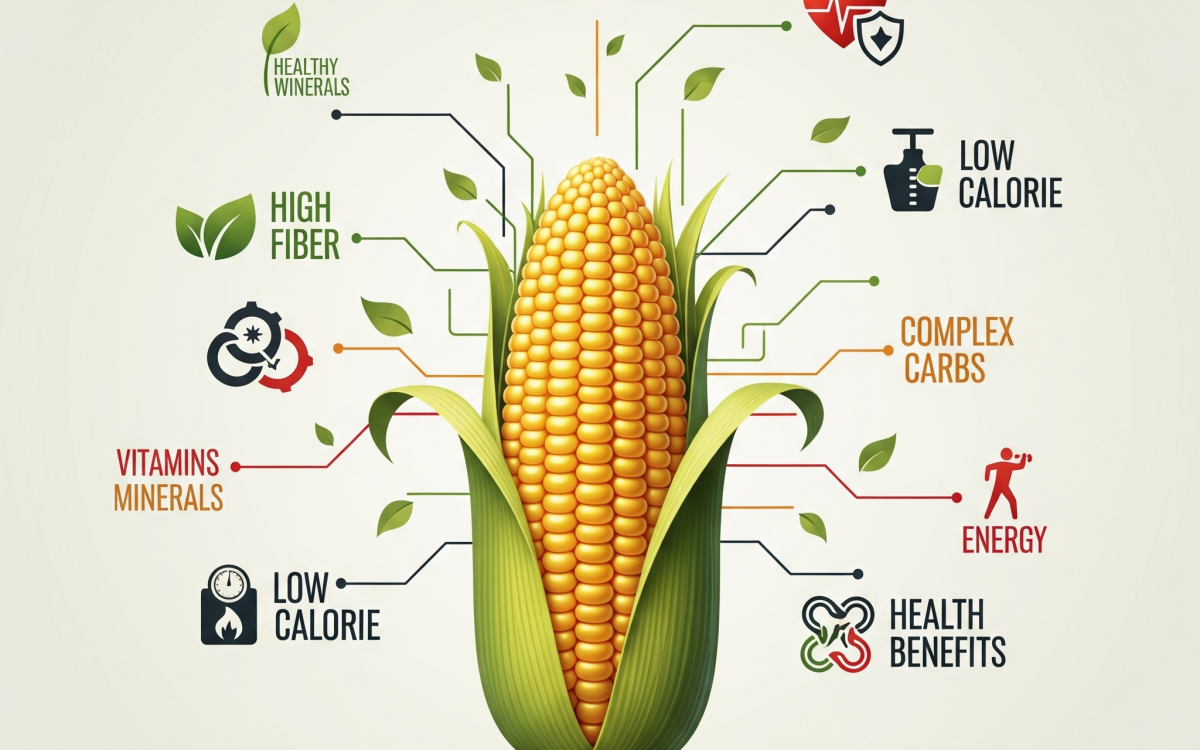Corn is a popular food that often sparks debate, especially when it comes to weight loss. Some view it as a starchy vegetable to avoid, while others see it as a nutritious addition to a balanced diet. The reality is that corn can support weight management in many ways, backed by solid nutritional science. In this article, we will uncover the truth about corn, clear up common myths, and highlight its health benefits that make it more than just a tasty side dish.

Does Corn Cause Weight Gain? Debunking a Common Myth
One of the most common myths about corn is that it causes weight gain simply because it is starchy. The truth is, corn alone does not make you gain weight if eaten in moderation as part of a balanced diet. A single ear of corn has about 100 calories—nearly the same as an apple. What really adds the pounds are the extras, like butter, cheese, or large portions that push you over your daily calorie needs.

Nutritional Value of Corn: A Rich Nutrient Profile
Corn is considered a nutrient-dense food despite its relatively low calories. The nutritional content in 100 grams of boiled corn shows it’s a real treasure of essential nutrients:
Calories: 96 kcal
Carbohydrates: 21 g
Protein: 3.4 g
Fiber: 2.4 g
Fat: 1.5 g
In addition, one cup of corn (about 145 g) covers a significant portion of the daily recommended intake of vitamins and minerals, such as Vitamin C (17%), Magnesium (11%), and Vitamins B1 and B9.

How Corn Supports Weight Loss: The Most Important Benefits of Corn
The benefits of corn in supporting weight loss are numerous, as it works through several mechanisms to help the body burn fat and achieve healthy balance:
Keeps you full for longer
Corn is a good source of insoluble fiber, which slows digestion and helps you feel satisfied for longer. This reduces the urge to snack on unhealthy foods. Research shows that higher fiber intake supports better weight control and helps people stick to calorie-conscious diets more effectively.
Complex carbohydrates for sustained energy
Unlike refined carbs that cause a quick spike in blood sugar, corn contains complex carbohydrates that are digested slowly. This slow digestion helps keep blood sugar levels stable and prevents the sharp highs and lows that trigger sugar and starch cravings. Sustained energy from corn keeps you active and energetic throughout the day, making it easier to stay physically active.
Source of plant-based protein
Protein is an essential nutrient for weight loss. Although corn is not as rich in protein as meat or legumes, it still provides a decent amount of plant-based protein. Protein is necessary for building and maintaining muscle mass, which in turn boosts metabolism (calorie burning), thereby contributing to healthy, sustainable weight loss.
Low in calories and fat
Corn is naturally low in calories and contains very little fat (close to zero in some varieties). This makes it an excellent option for those following a weight loss diet, as it can be enjoyed as a light snack or a side dish that adds flavor and nutrition without a big calorie load.

Other Health Benefits of Corn: Overall Body Support
The benefits of corn extend beyond just weight loss, offering comprehensive support for many vital body functions:
Prevention of chronic diseases
Corn is rich in antioxidants such as carotenoids and ferulic acid, which fight harmful free radicals in the body. Studies have shown that moderate consumption of corn is linked to a reduced risk of heart disease, diabetes, stroke, obesity, and certain cancers like colon, breast, and liver cancer.
Digestive health
The fiber in corn improves bowel movement and helps soften stools, preventing constipation and hemorrhoids. Corn also acts as a prebiotic, feeding the healthy gut bacteria, which strengthens immunity and enhances digestion overall.
Supports eye and skin health
Yellow corn contains Vitamin A and carotenoids such as lutein and zeaxanthin. These compounds are vital for maintaining good vision and preventing macular degeneration and cataracts. Antioxidants in corn also help protect the skin from wrinkles and improve its vitality.
Strengthens bones and teeth
Corn contains essential minerals such as calcium, phosphorus, and magnesium, making it a useful addition for strong bones and teeth.
Benefits of Corn: A Rich Source of Vitamins and Minerals
Corn is a natural source of many vital nutrients, including:
-
- Vitamin C: Protects cells from damage and supports immunity.
- Potassium: Helps regulate healthy blood pressure and prevents muscle cramps.
- Manganese, Zinc, and Copper : Important minerals for vital body functions.
- B Vitamins: Such as B3, B5, and B6, which aid in energy metabolism.

Healthy Ways to Eat Corn for Weight Loss
To maximize the benefits of corn, it should be consumed in healthy ways while avoiding unnecessary extras:
Boiled or grilled corn: Enjoy it as a healthy snack or side dish with a sprinkle of salt and lemon.
Corn salad: Mix corn with leafy greens, cucumber, and tomatoes for a nutrient-packed salad.
Popcorn: A fantastic low-calorie snack, provided it’s prepared with little or no oil and with minimal salt.

Corn is more than just a tasty food—it’s a smart choice for anyone looking to lose weight and stay healthy. With its fiber, protein, and slow-digesting carbs, it keeps you energized, satisfied, and on track with your goals. Beyond weight loss, it protects your heart, supports digestion, and nourishes your eyes, skin, and bones. The key is balance: enjoy corn in healthy ways, and it can easily become a golden ally on your journey to better health.





